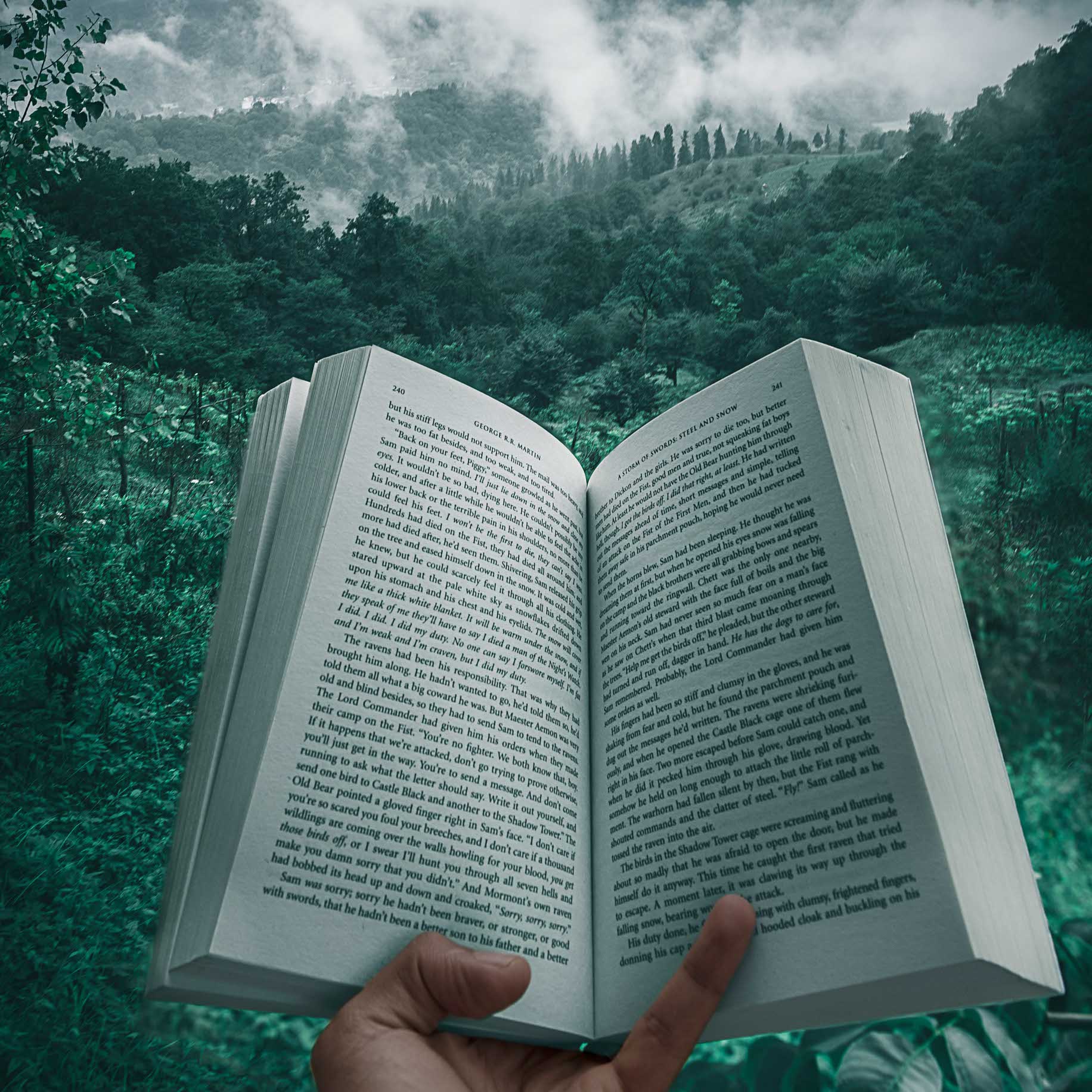“Nothing is invented. Everything is invented.”
Susan Sontag (Loving Dostoyevsky)
That music was not, I mused, what I would be listening to if I were she. She was driving an olive-green sports car that was just coming over the top of a hill, and before it the highway stretched for maybe twenty miles, meandering through this wet, cold green landscape that became grey and blue with distance and eventually merged with the low-hanging clouds.
As the day had advanced the villages had become smaller, the gas stations farther apart, the people fewer and stockier. In an hour or so the car would veer of the highway and follow a dirt path for another 60 miles. The air would grow chilly but it wouldn’t get dark anytime soon, not this far north.
In the novel I was reading the year was 1982 and on that car’s sound system was an abrasive voice fighting against syncopated guitar. This was hardcore punk, and it reminded me of that time when I was an adolescent trying to figure out how to play the electric guitar. For a while I’d tried to follow the punk vogue, mainly because it seemed so easy. But I couldn’t muster the angry energy, nor the reckless abandon of form. So while I was taking in that barren landscape through the novel’s sentences, I was imagining another music, powerful also, but older and with a darker mastery of guitar and voice: “Outside in the cold distance, a wildcat did growl. Two riders were approaching, and the wind began to howl.”
I had followed my fictional character—a thirty-something, successful silversmith—on her road trip from Vancouver to the Yukon’s most northern hamlet of Forty Miles. An excursion away from the everyday into the uncharted, to be and to think and to perhaps make a decision. As the novel went on layer upon layer of those outer and inner worlds accrued before my mind’s eye. There was much to recognize: the wild introversion of the mountains, rivulets dripping and seeping over cold rocks, the shades of greys and weathered mosses, my fascination with silver, with the shine and feel of the material, its oxidation into maps of weathered blackness. But above all there was that essential idea of going out into the unknown to explore and grow one’s inner landscape. Getting lost to discover new stories.
Oliver Sacks—that wonderful raconteur of the human psyche—suggests that “biologically, physiologically, we are not so different from each other; historically, as narratives, we are each of us unique.” This is to say that we are the stories we tell, to ourselves and to others. Stretching back: the stories we tell about our past, about how we came to be and grew into who we are now. Going forward: the stories about who we’d want to be and how we’re going to get there. And in parallel: our imaginings, our would-be lives, and our willful illusions. Together these weave a tapestry that may be rich or bland, exquisitely colorful or monotonous, well maintained or ragged, and sometimes even torn and badly stitched. A tapestry that may be wholly original or that may consist of nothing but borrowed and copied patches.
When young, we learn to speak through the voices that speak to us, continuously and lovingly (or not so). We learn to see the world through the nouns we hear, command the world through the verbs, imagine the world through the sentences and the possibilities they conjure up. These are the first threads we get to weave our tapestry, to shape our experiences and hopes into the stories we are. And with these threads we go out into the world, a world that is at first wholly unknown but soon becomes less so. Eventually even we run out of unknowns, and if we want to go on weaving our authentic tapestry we can claim new unknowns, through exploring and adventure, through introspection, but also through reading.
Reading, especially fiction, lets us peek into the great unknown: the mind of the others. And these others each turn out to have their own stories, an endless treasure trove of new words and verbs and sentences, inspiration and perspective and enrichment. But books may also be darker, more disturbing, offering the most fearless of readers “keys” into what the poet Franz Kafka once called, “the unfamiliar rooms in one’s own castle.” Those books, when we chance upon them, may give us seeds to live our most authentic lives, threads and patterns and patches to weave our most authentic tapestries.
In 1572, at the age of 39, Michel de Montaigne started writing his “Essais”—a French word we might translate as “try-outs”. An aristocrat and public servant living in troubling times, Montaigne had already gone through much personal turmoil. Two years before he had had come close to dying after a horse riding accident. But he had paid attention; had noticed that his particular way of nearly dying was nothing like the way it was described in the philosophical and theological canon.
That experience and many others set him up to try a new kind of writing, a kind that had never been attempted before: recreating in writing the sensations as he himself had felt and experienced them, from moment to moment, as truthful as he could. From then on until his death at 59, he would go on writing and revising and adding to his essays, often starting from practical questions—How to befriend? How to love? How to live? He didn’t look for an answer in the classical literature and philosophy as was customary until then: he carefully noted down how he himself solved a problem, how it felt, if it succeeded or not, and how people reacted.
It is said that he was the first to do so, and that by doing so he changed us. Because here is a paradox: by turning his writing into a journal of individual, authentic experience he discovered whole swaths of human experience that had never been recognized before. His writing became a mirror in which readers recognized the thoughts, feelings and stories that they might also have but had never considered. He invented words and sentences and a whole new language to think and talk about those experiences. He gave his readers ways to discover and tell richer stories about themselves, to refine the past and reinvent the future. To tell more authentic stories.
In Montaigne’s age, his readers had to grope their way through this uncommon, dense tangle of private musings. Some were bewildered, terrified even, and the church banned the book for centuries, which for some may perhaps have added to its allure. In our time in which individual expression has become the norm, it is maybe hard to appreciate how radically unconventional Montaigne’s writing was. Today, other authors have taken up that role, authors who fearlessly explore fiction and poetry and the in-between lands, who play and struggle with voices and words and views. Who in their turn show us paths and stories that we maybe hadn’t considered before.
Only recently, I read the autobiography of a highly sensitive and gifted rock climber who is perhaps at her most relaxed when she is climbing a mountain face where no one has been before, holding on to a rock ledge of a few millimeters by the tips of her fingers while around her wind and snow are blasting and below are hundreds of meters of void. (To be sure she is secured, and any mistake will send her tumbling no more than ten meters or so, which is frightening enough by my standards). Stephanie Bodet recounts in the book how one morning she woke up feeling slightly dizzy. But then when she moved her head the world started to spin and slide and revolve, making her nauseous in an instant. It was a disorienting experience, especially for a rock climber who depends on equilibrium and equanimity for survival; especially also for a highly sensitive person. More than those granite walls, this was her unknown and it took her six months to fully recover and find her way back, back to where she discovered that the stories she had told herself about who she was and who she would be had irreparably changed. Instead of a fanatic climber, she had again become an amateur, in the original sense of the word: someone who chooses to do what she does foremost because she loves it.
Reading that story also had me change mine. Because twelve years ago, at about the same time as Stephanie Bodet, I had likewise woken up dizzy. And when I moved my head the world had also started to spin violently. The doctor I called by hadn’t been alarmed, and he had given me some innocent eardrops for reassurance. The affliction, I later learned, was called Benign Paroxysmal Positional Vertigo. According to the medical literature, BPPV is a chance, transitory distress that involves the crystals in the inner ear that sense and monitor the position of our head. These crystals are temporarily dislodged, resulting in a sensation that most people experience as a benign bout of dizziness. But being highly sensitive, what I had experienced was all but benign. It had been vicious, and its effects were long lasting and transformative, setting me onto a much healthier course, making me go out in nature to walk and run and explore with abandon. But—and this is important—I had no story about what had happened. A single episode of BPPV couldn’t have done that. Or could it?
Bodet’s story was surely different from mine in all the details, but her account was a necessary reminder of the lens of high sensitivity, of how it can amplify and distort sensations and often becomes the main character in our stories of giftedness. Hers was but one of a series of such stories which—in this last decade and a half—have been shaping my understanding, the way I see and explain myself and keep refining that tapestry. Her account was a necessary reminder also that I—that we—have to keep on exploring the unknown for material to tell our stories, and that reading is a powerful way to do so. And it is no less a reminder that we should keep on telling our own particular stories to others, so that they may also uncover “the unfamiliar rooms in their own castle.”
(This text first appeared in the collection “Being Me: Reflections on the Gifted Person’s Path to Authenticity”, available on https://intergifted.com/bookshop/)
Photo: Khourosh Qaffari via Unsplash.com

